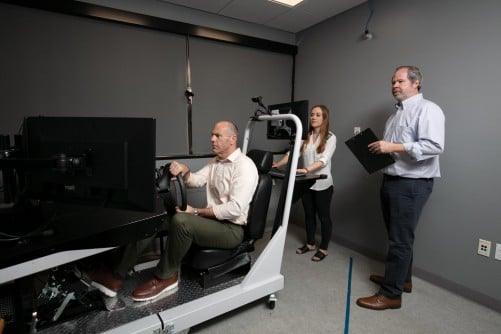
Scientists at the University of California San Diego (UCSD) School of Medicine have made significant findings regarding the driving performance of frequent cannabis users. In a comprehensive study conducted by the Center for Medicinal Cannabis Research (CMCR), researchers determined that these users did not exhibit impairments in driving after abstaining from cannabis for at least 48 hours. This research, noted as the largest of its kind to date, carries important implications for public health and the enforcement of cannabis-related driving laws.
As cannabis becomes increasingly legal and available—approximately three-quarters of Americans now reside in states where cannabis is legal—understanding its effects on daily activities, particularly driving, is vital. Current statistics indicate that about 15% of Americans use cannabis, highlighting the need for clear guidelines regarding its impact on driving safety.
While it is well-documented that acute cannabis intoxication can impair driving ability, law enforcement faces challenges in establishing impairment levels. Unlike alcohol, which has clear biological tests correlating with intoxication, cannabis presence is more complex. Tetrahydrocannabinol (THC), the psychoactive component of cannabis, can remain detectable in the bloodstream for several days or even weeks after use, complicating the assessment of impairment.
To explore this issue, researchers conducted two studies. The first was a randomized clinical trial involving 191 cannabis users who had abstained for a minimum of 48 hours. The second study focused on a subset of the most frequent users from the first study, comparing their driving performance with a smaller group of non-cannabis users. Driving performance was assessed using a simulator designed to measure potential impairment.
The results were striking. In their analysis, researchers found no evidence that participants who had abstained for at least 48 hours showed reduced driving abilities. First-author Kyle Mastropietro, a graduate student involved in the research, stated, “We did not find any relationship between driving performance, cannabis use history, or time of abstinence, nor blood THC concentrations.” Notably, even the most intensive users, who reported daily use and an average consumption of four joints per day, performed comparably to the non-user group during this period of abstinence.
Senior author Thomas Marcotte, Ph.D., a professor of psychiatry at UCSD and co-director of the CMCR, emphasized the implications of the findings. He noted that relying on blood THC concentrations as indicators of impairment in regular cannabis users is not justified, given that THC can remain detectable long after its effects have worn off. “The findings reinforce the challenges in relating findings from cognitive testing in very frequent users who are abstinent to how they might function during real-world, overlearned behaviors like driving,” he added.
While the study provides valuable insights, the authors also recognize its limitations. Conducted in a controlled laboratory setting, the research does not encompass all possible driving scenarios. Additionally, the comparison group of non-users was relatively small, which may affect the generalizability of the findings.
The study was published in the journal Psychopharmacology on September 6, 2025, and was partly funded by the State of California through Assembly Bill 266, which supports research related to medicinal cannabis. The authors declared no conflicts of interest.
These findings contribute to the ongoing discourse around cannabis use and public safety, emphasizing the need for further research as legislation and societal attitudes towards cannabis continue to evolve. Understanding how frequent cannabis use affects driving behavior is crucial in shaping future policies and safety regulations.







